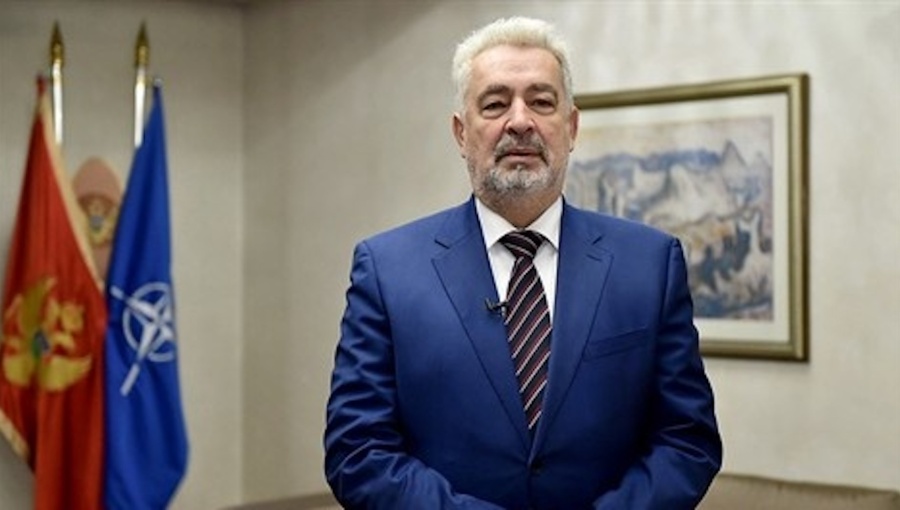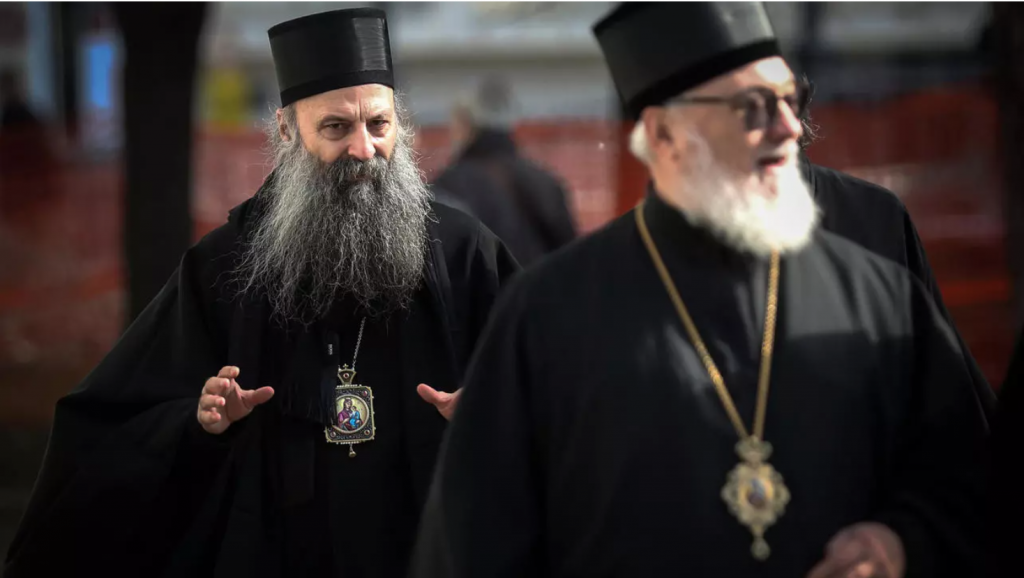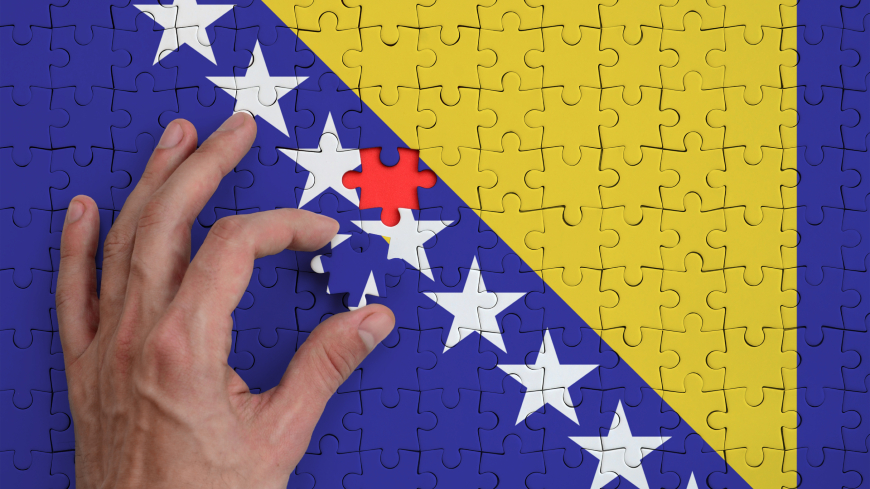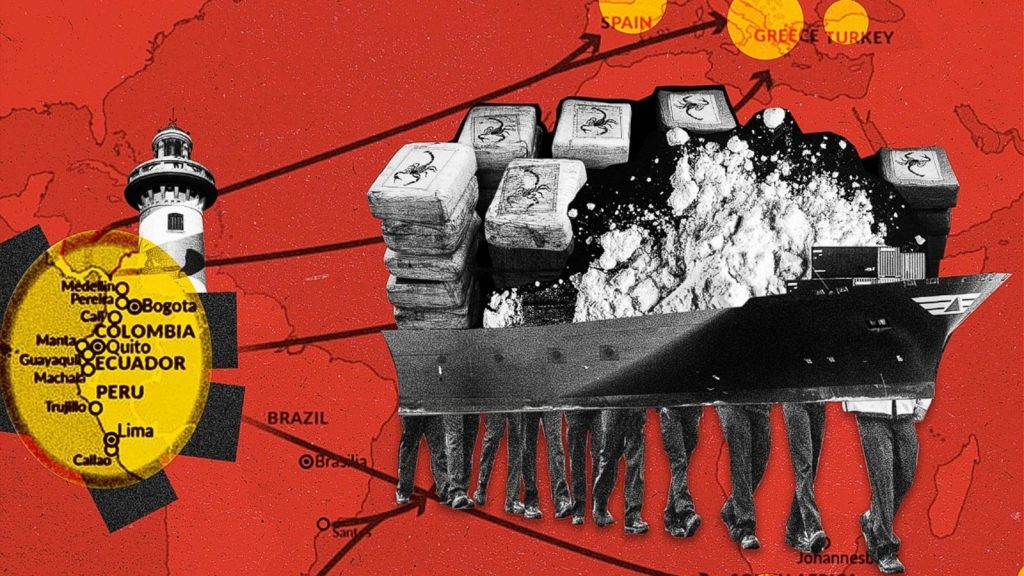Press Reviews
February 2021
International Media Digest
KOSOVO: ALBIN KURTI’S BIG WIN UNFOLDS A NEW ERA
As largely expected, Albin Kurti scored an overwhelming victory at snap elections in Kosovo on February 14. His party, Self-Determination (LVV), got 58 seats (48% of votes), doubling the result of past political elections in 2019 and becoming the strongest party in Parliament. The open list proportional representation electoral system (with a modified D’Hondt seat allocation system) does not give Self-Determination a bonus in terms of seats in the Parliament; thus, the party falls short of securing the absolute majority (61 MPs). Analysts predict a deal with parties representing ethnic minorities, to which the Constitution reserves 20 seats, but 3 votes are enough to get at least a short majority.
The Democratic Party (PDK), the Democratic League (LDK) and the Alliance for Future (AAK), the three parties that have dominated the political scenario in the last twenty years, poorly performed, securing some results only in historical strongholds.
Reasons behind Kurti’s impressive victory, which pushes Kosovo into a new political era, as many observers remark, lay mainly on deep reforms and commitment to restore the rule of law he promised, the Italian think tank ISPI stressed in this analysis. Kosovo is very poor and plagued with corruption. Young people – the majority of the population – are hungry for jobs, innovation and higher social security standards. Kurti’s campaign embraced these demands, vowing to fight against corruption and provide financial support for both startups and citizens left behind. He and his main ally, the current ad interim President Vjosa Osmani (she holds the office due to Hashim Thaci’s resignation to face war crimes accusations), will focus to deliver results in these fields once the government will be formed.
However, Kurti must also face talks with Serbia. In the coming months, the EU and the US will increase pressure on Pristina and Belgrade to re-start negotiations defining the normalization of political relations. Not an easy task. Asked by Euronews to clarify his view on this point, Kurti said that he is ready to discuss the wide range of issues keeping the two countries at odds. Yet, he also argued that “it is not acceptable to anyone in Kosovo to engage in a dialogue where we are supposed to compensate the state of Serbia for the loss of this state during times of Milosevic”. His comments sparked negative reactions in Belgrade, where Kurti is perceived as an anti-Serb hardliner nationalist who dreams to unify Kosovo and Albania. The pan-Albanian state was a top priority for Kurti until some years ago, together with the end of civil and military international missions in Kosovo. Unsurprisingly, this worried Western diplomats. However, the incoming Kosovar Prime Minister has softened the tone in recent years, shifting the focus on social issue and anti-corruption polices.
After elections, he just told Euronews that he would vote yes in case a referendum on this issue would be held in the two countries. The EU-funded network also asked him about vaccines (his government does not plan to buy the Russian and the Chinese ones) and relations between the Western Balkans and the 27-nation bloc. “The region will achieve congruence with Europe as a continent. We should never forget this and never let it go”, Kurti said.
ON THE VACCINE FRONT, EUROPE IS BACK
Brussels’ counteroffensive on vaccinations
In our last month’s analysis, we reported that leaders across the region blamed the EU for having shipped to the Western Balkans a negligible quota of vaccines. Edi Rama’s remarks were particularly harsh.
We also told that China and Russia are exploiting Europe’s lengthy action, providing Serbia a noticeable number of vaccines. By helping the main regional power, they boost chances to increase influence in Europe’s south-eastern periphery, which they both see as strategic. Thanks to Russia and China’s support, Serbia has sped up its vaccination program, now one of the fastest in the world. Other countries in the Western Balkans are now planning to buy the Chinese and the Russian vaccines.
The EU is by far the main political partner, investor and lender in the Western Balkans, but this story indicates how its leading role in the region can be challenged. To show more solidarity with its southeaster neighbours and win back their trust, Brussels, in partnership with the World Health Organization (WHO), has launched a project worth over €7 million to support safe and effective vaccination of the populations across the Western Balkans.
The French-Serbian rapprochement
While playing a multipolar foreign policy, the Serbian President Aleksandar Vucic has not forgotten that EU membership remains a top priority for his country. But he needs a new supporter in the bloc, due to the deterioration of relations with Germany’s Angela Merkel, irritated by Vucic’s growing hunger for power and his attempt to push for a land swap with Kosovo. So, Serbia has turned its head towards France. “Serbian elites invest in strengthening ties with France, in making France their new diplomatic protector”, writes Euronews. For his part, the French President Emmanuel Macron looks at Serbia as a sliding door to regain influence in the Western Balkans, a region that his predecessor, Nicolas Sarkozy and François Holland, did not consider as strategic.
The new course of bilateral relations mirrors in deals made by the two countries over the last two years. Belgrade has backed the new EU enlargement methodology, crafted by Paris, and purchased France’s Mistral very short-range air defence system. Vinci, the French powerful construction company, won a tender to modernize Belgrade airport, while the utility Suez has been tasked with developing a waste management facility in the town of Vinča.
Further News and Views

Justice, a rocky path for Montenegro’s new coalition
A delay over justice reform is stirring tension in the new Montenegrin Government, a coalition of former opposition parties that won parliamentary elections in August 2019, ending the long-time rule of the DPS, the party of the President of the Republic Milo Djukanovic. One of the factions of the coalition wants to fire the Special Prosecutor, yet the EU cast doubts on the move. The Prime Minister Zdravko Krivokapic finds himself caught between two fires.
BNE Intellinews, February 17

The new Serbian Patriarch
Porfirije, bishop of Zagreb and Ljubljana, is the new Patriarch of the Serbian Orthodox Church. He is a staunch supporter of the President, Alekandar Vucic, but has a more moderate view on Kosovo compared to his predecessor Irenej, who died recently of coronavirus
France Presse, February 18

Bosnia’s unimplemented crucial constitutional reform
The Constitution of Bosnia and Herzegovina, deriving from Dayton Peace Agreements signed in 1995, foresees that only members of Serbian, Muslim and Croat communities, the so-called “constituent peoples”, can be elected in the tripartite presidential office. The provision is discriminatory, preventing members of Bosnia’s other ethnic communities to run for the office, the European Court of Human Rights stated years ago. BiH authorities should upgrade the Constitution, yet nothing has happened so far. The Council of Europe has recently urged Bosnia’s politicians to act.
Council of Europe, February 19

The Albanian drug lord flooding Europe with cocaine
Dritan Rexhepi, an Albanian citizen, spearheaded a transnational cartel of Albanian drug traffickers, controlling the flow of cocaine from South America to Europe.
Balkan Insight, February 19
Monthly Analysis
VOTING MATTERS

In August 2020, parliamentary elections in Montenegro marked a major political upheaval in the tiny former Yugoslav republic. For the first time since 1991, The Democratic Party of Socialists of Montenegro, led by the President Milo Djukanovic, lost the majority in the assembly. A coalition made of the pro-Serbian Democratic Front and civic-oriented parties formed the new government, led by Zdravko Krivokapic. He appointed as ministers technocrats and personalities from the civil society.
On February 14, the region experienced a new stunning disruption, with the triumph of Albin Kurti’s party, Self-Determination, at snap elections in Kosovo, the poorest country in the region, lagging far behind in terms of Euro-Atlantic integration, which sees Montenegro as the frontrunner. Kurti’s victory ended the long-time political domination of parties formed during the war years against Serbia or even before, during the peaceful resistance to Milosevic’s authoritarian rule.
In spite of the two countries very different scenarios, elections in Montenegro and Kosovo present a strong analogy. The big change (Kurti and Krivokapic), stemmed from promises to eradicate widespread corruption, restore the rule of law and address social-economic disparities, and was consequences of the selfish and predatory posture of old elites.
From a Western perspective, political processes in the Western Balkans are driven by the choice between Euro-Atlantic integration and international isolation. Unsurprisingly, Western media gave some attention to the pro-Serbian (and pro-Russian) attitude of the Democratic Front, considered as a threat to the West-oriented foreign policy promoted by the DPS since the end of the Balkan wars. However, the new Montenegrin government renewed its commitment to NATO and EU integration. Also, Kurti’s pan-Albanian views were scrutinized, despite – as said before – the incoming Kosovar Prime Minister has shifted towards other objectives in the last years.
Not that these postures should not be underestimated. Yet, the main reason of political upheavals in Montenegro and Kosovo originates from domestic issues. Poverty, hunger for jobs, youth frustration and anger for state capture: this is the stake. People in the Western Balkans still believe in European integration, but while in the past they thought that problems at home would have solved by Europe, now – since the enlargement is stalled – they are more proactive. They understand that voting matters. They do not wait for Brussels. This is the new trend emerging in the region.
The Insight Angle

SOFIJA TODOROVIC
Project Coordinator, BIRN
Media freedom is a crucial asset in any democracy. Over the last years, it has been repeatedly threatened in the Western Balkans. We have asked Sofija Todorovic, Balkan Investigative Reporting Network (BIRN) project coordinator, to tell us the state of the art of the sector and BIRN commitment to media freedom. The network she coordinates is involved in several programmes to support media independence and quality of journalism. Here is what Sofija, the guest of The Insight Angle this month, told us.
A recent Transparency International research has highlighted that media sector is growingly under pressure due to state capture, which unfortunately is a trend in the region.
The media sector has been under pressure for many, many years. Media outlets that strive to report independently and cover under-reported topics in the public interest are being targets of attacks both offline and online. The coronavirus crisis has added a new set of concerns to an already deteriorating situation for free media as governments in Central and Southeast Europe attempt to control the narrative and avoid scrutiny, even as dangerous disinformation swirls. The authoritarian tendencies are omnipresent in the region and the governments seem ready to reduce freedom more than is necessary during the state of emergency – no doubt knowing that it will leave behind a lot of fear and intimidation, which will last far longer than any pandemic.
Through our reporting, we have identified several key trends: the rise of autocratic leaders, assaults on transparency and media freedom, disregard for the rule of law, growing challenges for civil society, as well as polarization, demographic and social change and acute geopolitical tensions in a fractious Europe.
The situation with media freedoms varies and has its particularities in each country, even though there are many shared issues in all states in the region. Independent journalists especially, were subjected to severe limitations of freedom of speech under the excuse of the health crisis, which in some cases has also led to their incarceration.
So, the pandemic has been an accelerator of this negative trend.
Due to the highly controlled media landscape and poor level of media literacy in the countries that were monitored, the public was overwhelmed with contradictory information and had much more difficulty in recognising false and misleading information during the pandemic than usual. At the same time, the public’s need for timely and proper information had never been bigger.
While the flow of information continued to grow immensely, states started to arrest citizens for posts on social media over the accusation they caused panic and unrest. Some countries imposed authoritarian regulations that limited the flow of information.
The lockdowns have caused print media sales and advertising revenue to collapse and that various emergency laws and provisions allowed governments increased control over public information.
How Governments in the region are working to tackle hate speech and fake news online?
As I mentioned in my previous answer, governments used very repressive and not properly tailored measures to deal with fake news during the COVID pandemic. Members of the public, media representatives and politicians were arrested and fined for their writings on social media, often without any clear criteria. Journalists were arrested in Serbia, Kosovo and Turkey.
Arrests and fines have become one of the main tactics to counter fake news and violations of restrictions imposed by all governments in the states that were monitored. In Hungary, Serbia, Bosnia, Croatia and North Macedonia, top state officials warned the public that they faced immediate sanctions for spreading fake news amid the pandemic.
The true dedication to this endeavour cannot be seen still. Unfortunately, government’s representatives are often fuelling these damaging narratives by using hateful rhetoric.
BIRN is involved in a project widening media independence. How do you plan to achieve this goal?
BIRN aims to expose wrongdoings and corrupt practices and hold government accountable while at the same it strives to connect journalists across the region and to boost their professional reporting skills. The receipt would be hard and continuous work, and the ability to start all over again by using the lessons learned. I strongly believe in the power of investigative journalism and its potential to contribute to the building of more fair societies, based on the principles of transparency and accountability.

Matteo Tacconi
Journalist and analyst, he covers the Balkans for a wide range of media networks. He worked as electoral observer for the OSCE/ODIHR in Albania, North Macedonia, Russia, Georgia and Ukraine.

